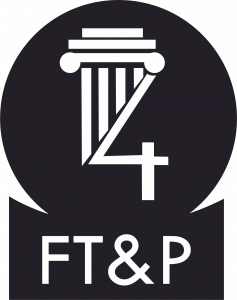When a dispute arises involving a subsidiary of a parent company, the question also arises as to jurisdiction – the courts that may be seized of the court proceedings: would it be the operational/registered home of the subsidiary or the courts of the jurisdiction where the parent company is headquartered?
A good example where the juridical home debate rages more than any other is in the oil exploration and extraction sector. In this industry compensation claims for oil spills and environmental pollution are a topical issue of international proportions.
The case study/test case:
The Claimants are residents of Ogale and Bille communities, comprising of about 13,652 residents and 17 organisations (including churches and schools). They brought a compensation suit against the Royal Dutch Shell (RDS) at the High Court in London, for oil spills that caused environmental pollution which resulted to death, hunger and hardship to the members of the community. Royal Dutch Shell (RDS) is the parent company of Shell Petroleum Development Corporation (SPDC) and headquartered in London, while SPDC is a subsidiary of RDS carrying on oil exploration and extraction operations in the Niger Delta areas of Nigeria. A preliminary objection was filed by RDS and argued that the English courts lacked jurisdiction to entertain the suit. The objection was grounded on the fact that SPDC was a corporate entity recognised by Nigerian law and who carried out the alleged acts of environmental pollution. That the Nigerian courts should be seized of the jurisdiction instead of the English courts. The Claimants argued that the RDS owed them a duty of care because it had significant control over its subsidiary – Shell Petroleum Development Corporation.
In a majority decision of the learned honourable justices, the UK’s Court of Appeal held against the claimants: that they had not demonstrated that Shell actively intervened in the operations of its Nigerian subsidiary prior to receiving any disclosure. The claimants appealed to the UK’s Supreme Court, arguing that the approach deployed by the Court of Appeal was at variance with a Supreme Court’s judgment in Vedanta. In Vedanta, the Supreme Court recognises that claimants who bring claims against multinational parent corporations “depend heavily upon the contents of documents internal to each of the defendant companies, and upon correspondence and other documents passing between them, currently available to the claimants, but in due course disclosable.” Accordingly, in 2021, the Supreme Court ruled that there was an arguable case that Shell (RDS) was responsible for Shell Petroleum Development Corporation (its Nigerian subsidiary) because it exercised significant control over its subsidiary that operated in Nigeria. By this ruling the Ogale and Bille communities were allowed to pursue their claims for compensation against Royal Dutch Shell – the parent company.
This is a test case, first of its kind where the corporate vale of a subsidiary company was removed to reveal the ‘mind & soul’ behind it.
The juridical home effect:
Why would Claimants be more interested in bringing their claims in the juridical home of the parent company of a group rather than where the subsidiary company operates and carries on the breach resulting to a claim? In this particular case of Ogale and Bille communities, the claimants are so desirous to bringing their suit in the English courts and not in the Nigerian courts because doing so offers them the possibility of more international exposure, with a higher degree of securing justice, both of which aren’t in the interest of RDS.
The ultimate ‘mind and soul’ of Multinational Corporations are not typically domiciled domestically within their locale of operations of their subsidiaries; they are situate and headquartered in a particular international jurisdiction different from where its subsidiaries operate. With regards to claims, particularly compensation claims, there is the general legal practice that holds it commercially exigent for claimants to seek for the man with the deepest pocket rather than the man with a shallow or no pockets at all, and one whose corporate image will be most negatively impacted by a suit. In the Nigerian context, other than the need to secure the largest compensation amount possible, there are further difficulties to consider when deciding whether to bring a compensation litigation against a subsidiary of a multinational corporation operating in Nigeria or against the parent company itself. These difficulties have to do with complications such as slow judicial proceedings occasioning serious delays and injustice, likelihood of low or unattractive compensation award, possible complicity within the judicial system and many more.
By virtue of the unprecedented ruling handed down by the Supreme Court UK, claimants can now bring colossal compensation claims against the parent company of a multinational group headquartered outside the operations jurisdiction of its subsidiary.
Author: Ifeanyi P. Okoli
Fourz Towers & Partners



